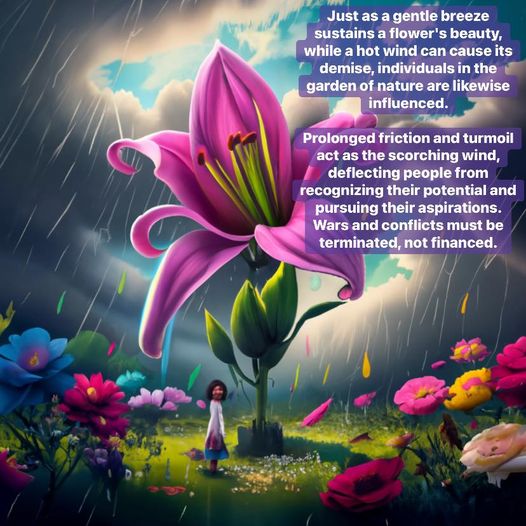
In the tranquil garden of nature, where delicate flowers bloomed under the nurturing care of the sun, there existed a profound analogy for human life. Just as a gentle breeze sustained a flower’s beauty, while a hot wind could cause its demise, individuals in this garden were likewise influenced.
Among the vibrant blooms stood a young flower named Lily. She possessed a unique radiance, her petals reflecting the brilliance of the sun. However, the garden was not always peaceful. Prolonged friction and turmoil, akin to a scorching wind, often swept through, deflecting people from recognizing their potential and pursuing their aspirations.
Lily had dreams of reaching new heights, of spreading her petals to their fullest extent and basking in the warmth of the sun. But the winds of conflict disrupted her journey. As the garden experienced turmoil and unrest, Lily found it increasingly challenging to flourish. The constant battles between the elements of the garden, represented by wars and conflicts, hindered her growth.
Determined to thrive despite the adversity, Lily sought a way to end the conflicts that plagued the garden. With unwavering resolve, she rallied her fellow flowers, encouraging them to join her cause. Together, they advocated for peace, for the termination of wars and conflicts that stifled their potential.
Their efforts bore fruit as more and more flowers joined the movement. The garden, once ravaged by the scorching winds of conflict, gradually transformed into a sanctuary of peace and prosperity. Lily, now able to spread her petals freely, reached towards the sun, her beauty shining brighter than ever before.
In the end, the garden of nature served as a powerful reminder that wars and conflicts must be terminated, not financed. For they are the storms that ravage the garden of potential, leaving destruction in their wake. But with unity, determination, and a commitment to peace, even the most delicate flowers can flourish, reaching their full potential under the gentle care of the sun.

